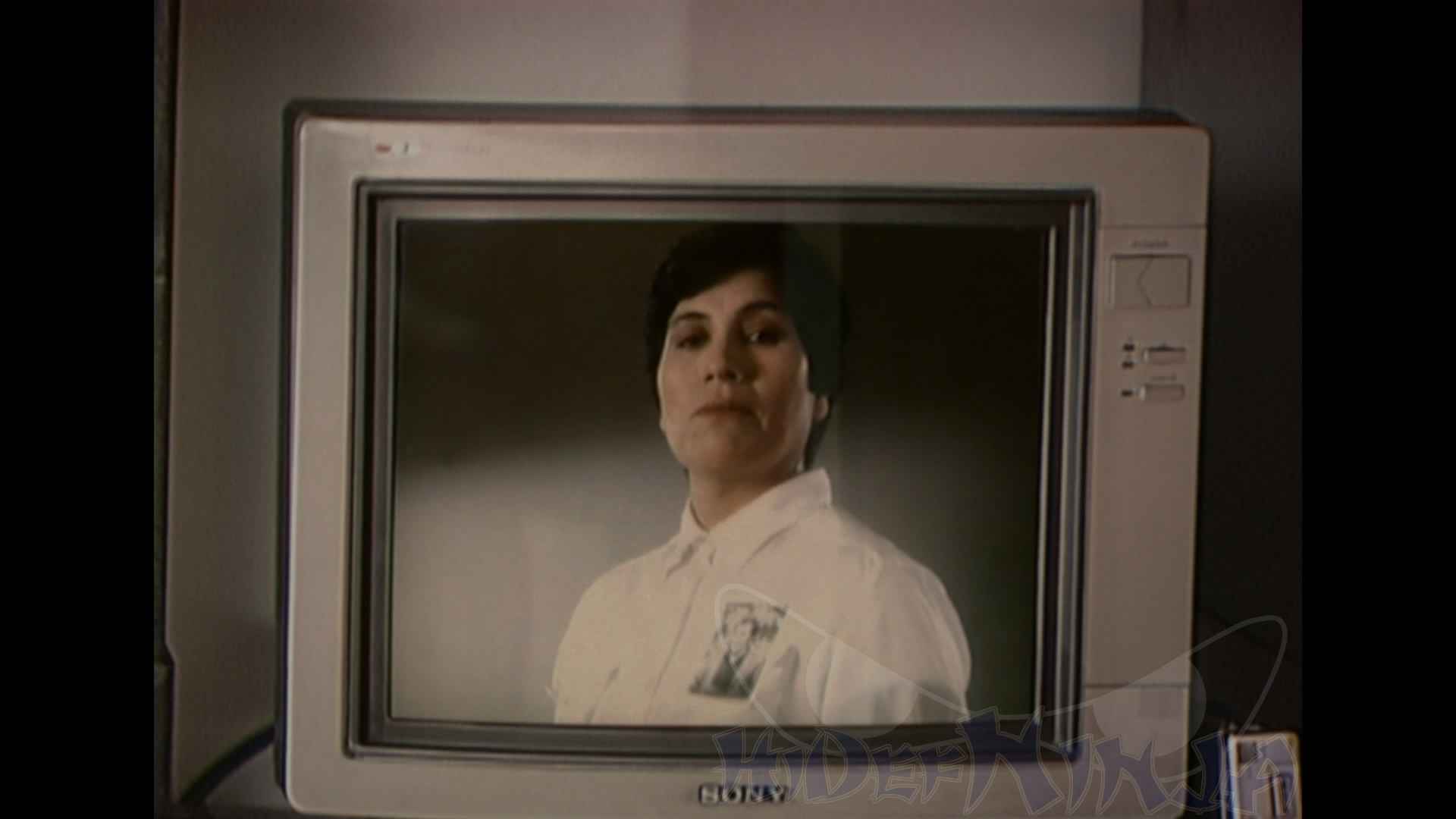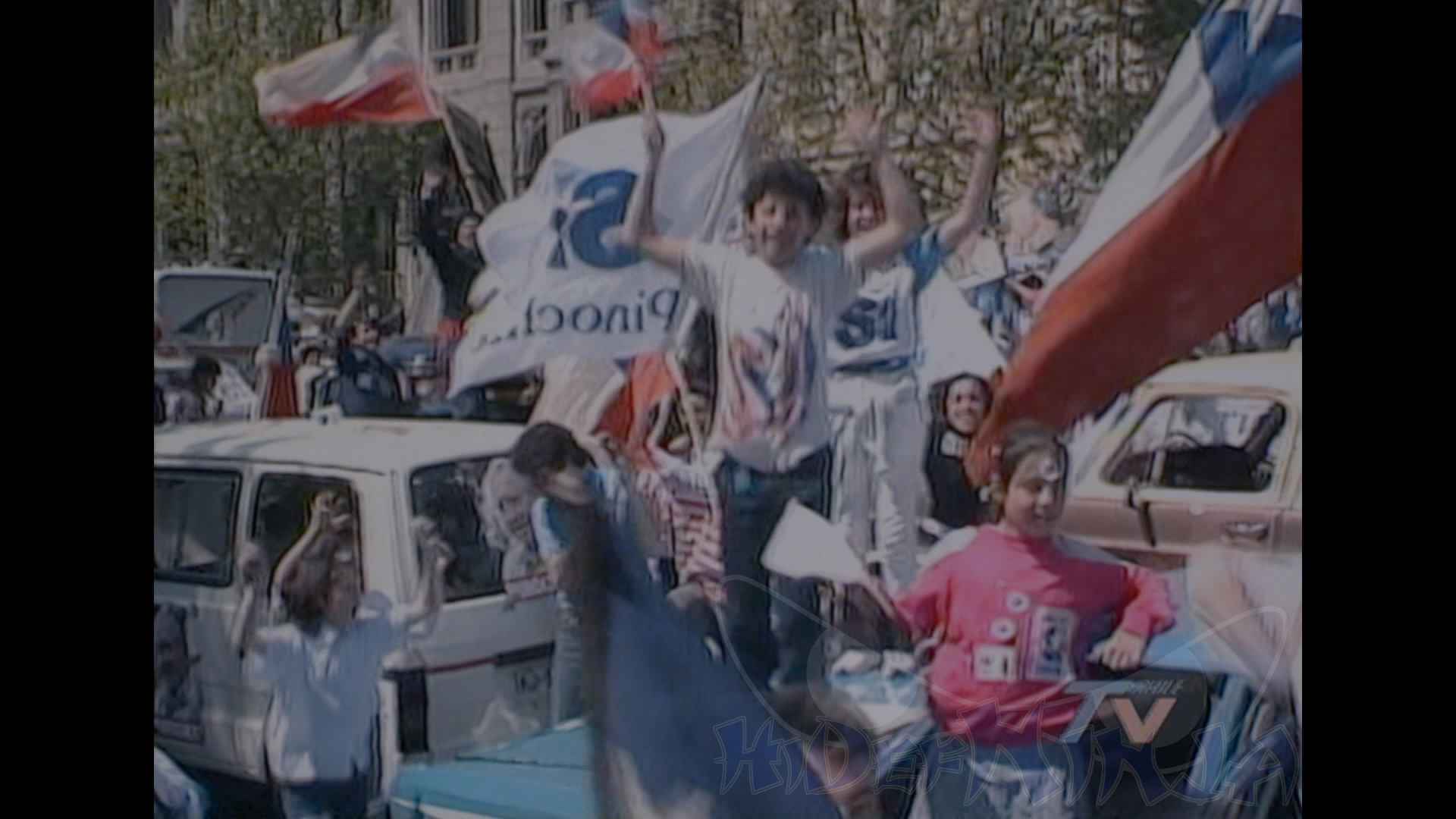The foreign-language political drama No sounds good but looks mediocre at best.
As a history teacher, I’ve commented to my students on many occasions about the tremendous gifts that our forefathers granted our nation when the Constitution was approved in 1789. Children today don’t appreciate the power of Democracy, mostly because they’ve never had to defend it on their own shores. For a country like Chile, who in 1988 rose up to unseat the oppressive Pinochet government, Democracy is a relatively new term to its people. The foreign language film No documents that struggle, with a home release that sounds great, but purposely looks mediocre at best.
The year is 1988, and under growing international pressure Chilean General Augusto Pincohet has scheduled a national vote (called a plebiscite) to determine whether his people wish him to stay for an additional eight years or be removed. Life under the dictator hasn’t been easy, even though Chile at the time was one of the most industrious in South America. The government decides to subsidize each side for a series of 15-minute infomercials over the 27 days leading up to the plebiscite – this is when ad exec René Saavedra (Gael García Bernal) is approached by the ‘No’ campaign to produce these nightly spots. He’s known as much for his father’s heroics as an exiled activist as he is by his flashy, youthful ads. His ex-wife (Antonia Zegers), herself an activist who is jailed near film’s beginning, thinks Rene’s message of hope and optimism for Chile is superficial and glib, doomed to failure. Soon, Pinochet’s regime begins to feel the heat, and hires Rene’s own ad boss Lucho Guzmán (Alfredo Castro) to run the ‘Yes’ campaign.
Soon, René quickly finds himself at odds with the campaign’s leaders who don’t appreciate him selling Democracy like a soda or a microwave. They feel his campaign deliberately avoids the sacrifices made by the Chilean people, and his steadfast refusal to tell the truth about Pinochet’s regime. Moreover, they worry that Rene’s message of a perfect future for all is something they can’t fulfill if they win. As election night looms, René is vindicated when his artificially inflated message of hope results in a stunning victory for ‘No’ and the ouster of Pinochet, resulting in a triumphant stroll through the city streets with his son Simon.
No is as much about selling oneself as it is fighting an oppressive regime. The brave people who stood up to produce the ‘No’ campaign deserve every bit of credit for their work, but No takes too long to up the ante, never really placing our leads in any sort of real danger for joining the ‘wrong side.’ While that might not have been the goal of Director Pablo Larraín, the story suffers as a pseudo-documentary than a dramatic re-telling. It’s hard to argue against Democracy’s power in storytelling, but when told in such a dull style as No, the average moviegoer might find the story to be frustrating. Some might claim that a Hollywood-ized perspective would have resulted in an alteration of the truth, but I believe a balance could have been struck that would have rewarded the story without sacrificing its soul.
Bernal seems on the edge of tears throughout most of the film for reasons I couldn’t understand; sure, he’s in the middle of a cauldron that’s way above his pay grade, but he’s never given the chance to spread his wings and let those emotions erupt. Again, that understated approach might have been the point, but it doesn’t feel like the right way to tell such an important story. It’s also fairly one-dimensional in its approach, never delving into our characters enough, and choosing instead to show the political tennis match as well as the response from the ‘Yes’ camp. Suddenly in the third act, we see Hollywood actors like Christopher Reeve and Richard Dreyfuss appearing in ‘No’ commercials with no backstory as to how the campaign picked up such incredible support. Instead, we’re given the inside track into the bickering that went on behind the scenes, including the growing troubles within the ‘Yes’ camp leading up to election day. When that moment comes, all Larrain can do is shoot the stiff Bernal barely containing his emotions instead of allowing them to shine through. As Bernal returns to the life of an ad exec, we don’t see a change in his character that must have occurred in real life. This understated approach flows throughout No and in my opinion it’s worse for it.
Don’t get me wrong: Larrain paints a fine picture of Democracy in action, but No is missing its soul and therefore its message. I do not deny that the people of Chile were very brave in standing up to out Pinochet, but No doesn’t pull on our strings like Argo did. Under that sort of scrutiny, it’s easy to understand my concerns about it.
Shot using the same analog equipment used during the campaign, No is a visual mess, especially for those expecting this to look more like Argo than Eight is Enough. Granted, the blurriness that predominates the image is meant to bring a deeper meaning to the movie, but it just looks horrid. Crush is present all over the place, colors bleed into one another with alarming frequency, and haze hangs over every scene. Even the screen dimension of the time – 1.40:1 – is used, creating that boxy view into our story, instead of giving it the space it truly deserved. Contrast is way out of whack, delivering a flat image that only accentuates the banding, edge enhancement, and a weird 3D effect throughout. Finally, blacks and shadows do not like each other much here, swallowing up any detail like a roundup of political agitators by an oppressive government.
If it was the director’s intent to present us with a lesson on video standards from 2000, then they’ve certainly made their point. I get that the film wanted to take us back to this hopeful period for Chile, but couldn’t it have been done by throwing hi-definition into the mix? No might have taken top honors at Cannes, but it certainly won’t win one for its video transfer.
No is presented with a DTS -HD Master Audio 5.1 track that’s nothing like its befuddling video. Although most of the movie is based on dialogue, the track does a good job of separating conversations from sound effects, with the front speakers performing a majority of the work. The only time No really struts its stuff is during times of crowd noise or when music dominates the scene. This is where the surround shines, producing an immersive experience by also generating atmospherics that enhances what we see on the screen. Listen for the electric train set and the way it rotates from forward speakers to the rear ones. The track’s power is also apparent during the violent reaction by Pinochet’s police during a ‘No’ rally campaign. It’s also during these times that the LFE is present, thumping its way through the film’s violent third act and its positive ending. Sound can play a powerful role in telling a story, not only in its use but also in its silence. No provides an excellent example of how a mostly dialogue-heavy film can make its audio track seem more memorable by subduing it and then exploding it onto the soundscape.
No features a limited supplemental package including:
- Commentary with Actor Gael Garcia Bernal and Director Pablo Larrain: The creative team take us through the challenges of financing and shooting this film, along with the incredible story behind the ousting of Pinochet. It’s a genuine and honest presentation that’s also very informative.
- Q&A with Gael Garcia Berna (HD, 12:47): Shot after a screening of the film, Bernal takes questions from the audience. The politics behind Chile’s first true democratic election is a central focus during this featurette.
- Theatrical Trailer (2:03)
- Previews: These are the previews which appear when the disc is inserted.
Our evaluation copy arrived in an Amaray with the sometimes problematic side-clasp. And while there’s no slipcase or art card, the art on the inside cover is attractive. The single 50GB disc is the only one in the case, so no DVD or Digital Copy.
No was hailed as a crowning achievement in how Chileans stood up for themselves and the political campaign that raged between the ‘Yes’ and ‘No’ campaigns. It only gets going in the third act, and even then it’s very understated. The presentation suffers greatly with an analog transfer that does nothing to immerse the viewer, but its lossless audio track is its best part. And while one would have enjoyed a bio on Pinochet’s ouster or additional supplements, there’s enough for the interested to dig deeper. If you enjoyed Argo and even Steven Spielberg’s epic Lincoln, you’ll appreciate the story of democracy presented here.
No is rated R for language and has a runtime of 118 minutes.
Discuss this review with fellow HDN fans on Facebook. On Twitter, follow us at @HidefNinja, and follow author Matt Cummings at @mfc90125.















